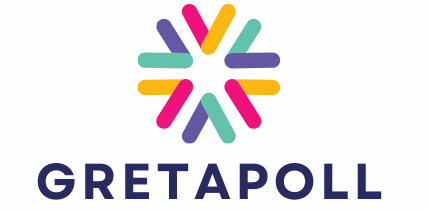Table of Contents
ToggleIn a world where technology seems to solve everything—except maybe that stubborn sock that disappears in the dryer—healthtech startups are revolutionizing the way we approach healthcare. These innovative companies are like the superheroes of the medical world, swooping in to save the day with cutting-edge solutions that make health management easier, smarter, and a whole lot more fun.
Overview of Healthtech Startups
Healthtech startups play a pivotal role in reshaping the healthcare landscape. These companies develop cutting-edge solutions that address pressing medical challenges. From telemedicine to wearable technology, various innovations emerge to enhance patient care and streamline operations.
Investment in healthtech has surged, reflecting a growing confidence in the sector. In 2021 alone, global healthtech investments reached over $30 billion, underscoring the demand for improved healthcare delivery. Startups focus on areas like artificial intelligence, big data, and remote monitoring to provide solutions that elevate healthcare services.
Developers create user-friendly applications to empower patients in managing their health proactively. Many startups offer platforms that connect patients with healthcare providers, making appointments more accessible and efficient. These technologies often integrate seamlessly with existing healthcare systems, driving increased patient engagement.
Regulatory challenges present hurdles for healthtech startups. Compliance with health regulations can be complex, yet many startups navigate these landscapes successfully. Innovations in data privacy and security ensure that patient information remains protected while leveraging technology to enhance care.
The collaborative nature of healthtech fosters partnerships with established healthcare entities. Hospitals and clinics often team up with startups to pilot new solutions, facilitating real-world testing and feedback. This synergy breeds an environment ripe for innovation, creating scalable solutions that address various healthcare issues.
Startups are redefining health management by prioritizing personalized experiences. Services tailored to individual needs improve overall health outcomes. By focusing on user-centered design, healthtech companies ensure that solutions resonate with patients and providers alike. This dynamic evolution continues to attract attention and drive investment across the healthcare spectrum.
Key Innovations in Healthtech
Healthtech startups continue to drive innovations reshaping the healthcare landscape. These advancements primarily focus on improving patient care and optimizing healthcare operations.
Telemedicine Solutions
Telemedicine solutions enhance access to healthcare services. These platforms enable patients to consult with healthcare providers remotely through video conferencing, chat, or phone calls. Many users appreciate the convenience, which eliminates travel time and reduces exposure to illness. Statistics show telemedicine usage surged, with a report indicating a 154% increase in telehealth visits in 2020 alone. Providers can monitor patients’ conditions closely, ensuring timely interventions. Moreover, insurance companies increasingly cover telemedicine services, further supporting its integration into routine healthcare.
Wearable Health Devices
Wearable health devices empower individuals to track their health metrics in real time. These gadgets monitor vital signs such as heart rate, blood pressure, and sleep patterns. They collect data that informs users about their health trends and encourages proactive management. Industry estimates indicate a reach of over 1 billion wearable devices by 2022, highlighting their growing popularity. Integration with health applications facilitates seamless data sharing with healthcare providers. This connectivity enhances personalized care and creates opportunities for remote monitoring and early intervention, ultimately improving health outcomes.
Market Trends and Growth
The healthtech sector is experiencing remarkable growth driven by innovation and increased investment. Startups are seizing opportunities to transform healthcare delivery, addressing challenges with cutting-edge technology.
Investment Opportunities
Investors are increasingly drawn to healthtech, with global investments surpassing $30 billion in 2021. Prominent areas attracting funding include artificial intelligence, remote monitoring, and big data solutions. The potential for high returns fuels this interest, as startups demonstrate scalability and adaptability. Notable venture capital firms focus on identifying disruptive healthtech innovations. Startups that prioritize user experience attract capital, leading to partnerships with established healthcare organizations. As execution capabilities improve, investors are keen to support healthtech solutions that enhance patient care and operational efficiency.
Consumer Adoption Rates
Adoption rates for healthtech solutions are rising significantly as consumers seek accessible healthcare options. Telemedicine services saw a remarkable increase, with telehealth visits surging during the pandemic. Patients now prefer virtual consultations due to convenience and efficiency. Insurers increasingly recognize this shift, expanding coverage for telemedicine services, further promoting consumer acceptance. Wearable health devices are also gaining traction, with over 1 billion projected in use by 2022. Individuals now favor these devices for real-time health monitoring, embodying proactive health management. This elevated consumer engagement emphasizes the value of integrating technology into health practices, redefining healthcare delivery.
Challenges Faced by Healthtech Startups
Healthtech startups encounter various challenges that can hinder their growth and success. Addressing these issues is crucial for their development and sustainability in the competitive healthcare landscape.
Regulatory Hurdles
Navigating regulatory hurdles poses a significant challenge for healthtech startups. Compliance with healthcare regulations varies across regions, making it complex to develop and deploy new technologies. Startups must ensure adherence to privacy laws, such as HIPAA in the United States, which safeguards patient data. Additionally, obtaining approval from regulatory bodies like the FDA often requires extensive documentation and testing. These processes can delay product launches and increase operational costs, impacting overall agility. Many startups collaborate with experts to better understand regulatory requirements, aiming for efficient pathways to market entry.
Competition in the Market
Intense competition characterizes the healthtech market, where numerous startups aim to innovate. Established healthcare companies and newcomers both vie for market share, creating a crowded environment. Differentiation is essential for attracting investments and customer loyalty. Innovative features, superior user experience, and evidence-based results can set a healthtech startup apart. Market research reveals that consumer preferences are shifting towards solutions that enhance convenience and accessibility. To thrive, startups must continually adapt their offerings and stay ahead of industry trends, ensuring they remain relevant in a rapidly evolving marketplace.
Healthtech startups are revolutionizing the healthcare landscape by introducing innovative solutions that prioritize patient engagement and accessibility. Their ability to leverage technology for better health management is reshaping how individuals interact with healthcare services. As they navigate challenges like regulatory compliance and market competition, these startups continue to attract substantial investment, showcasing their potential for growth and impact.
The rise of telemedicine and wearable devices highlights a shift towards a more proactive approach to health. With increasing consumer adoption and support from insurers, healthtech is set to play a crucial role in the future of healthcare delivery. As the sector evolves, these startups will remain at the forefront of transforming health management and improving patient outcomes.




